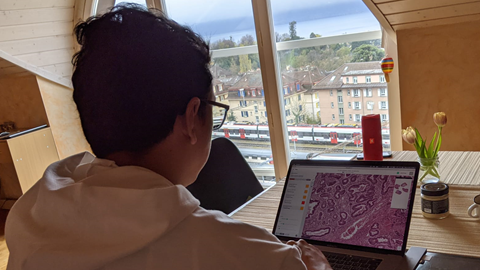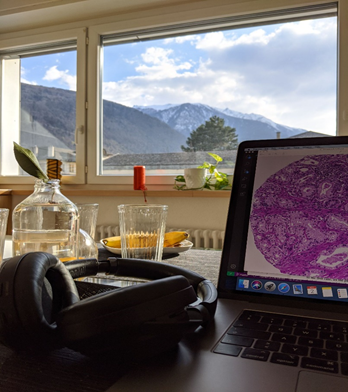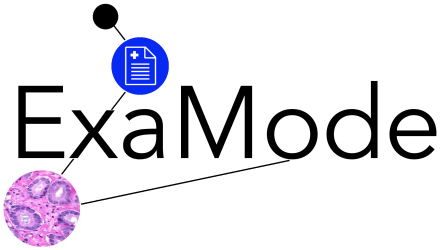The life of a Ph.D. student during COVID-19
The story of Sebastian

In this blog post we share the experience of Sebastian Otálora, PhD candidate working on computational pathology at the Institute of Information Systems of the HES-SO Valais University. What is the experience that Sebastian had with ExaMode and the outbreak of COVID-19? Let’s find it out!
I’m just a couple of months away from defending my Ph.D. thesis, I feel like all the bits and pieces of my work make me better understand the bigger picture of computational pathology. It’s incredible how the field has evolved in the last 5 years. When I started my Ph.D., in late 2016, the standard methods for analyzing medical images – known as Whole Slide Images (WSI) in pathology – required annotated regions, which were cut into small tiles (or patches) and used to extract features and perform deep learning techniques. But now, such an approach would just look outdated and naïve!
During my experience in ExaMode, I worked on many different techniques and approaches to overcome those standard methods used back in 2016, such as developing weakly supervised models or dealing with the high heterogeneity of staining techniques within images, or even trying to combine visual and textual data together. However, what I will remember the most will be the fond memories of the in-person project meetings, where the vibrant and open-minded discussions always helped me to advance my research. For instance, in the second project meeting – held in Catania in the summer of 2019 – Filippo Fragetta, head of the Pathology Unit at Cannizzaro Hospital (Catania), gave us an amazing tour of the pathology workflow in one of the first fully-digitalized pathology laboratories of Europe. And after the tour, we also had a marvelous dinner together with all the ExaMode partners! After that, in January 2020, we flew to Amsterdam for the third project meeting, where we had a closer look at the Surfsara data center and infrastructure. It was nice to see the physical servers we use for our experiments, as well as the inner workings of the storage tapes that make long-lasting copies of stored data!

Then COVID-19 arrived, you know what happened… and well, no more coffee breaks or discussions at the office and, unfortunately, no more in-person project meetings. Recently, we also received an email from Sirma-AI (check our interview with Sirma-AI here) telling us that the next project meeting will be held online. It was a pity for me, since I wanted to see all of them once more.
Nevertheless, we are still tightly connected all the time and resiliently developing and delivering methods and tools, even though most of ExaMode data comes from hospitals – where COVID-19 impacted the most, leaving clinicians little time for research projects.
Overall, I had a tremendous formative and research experience participating in ExaMode while doing a Ph.D. – regardless of the presence of COVID-19.
So, what’s next? Well, for now, I’m focused on preparing the last chapters of the thesis and the presentation for the defense. In my free time, I think about how to best continue my career as I walk in the beautiful city of Lausanne, the city where I live. But one thing is for sure: I’ll keep working to create data-driven computer systems moving towards the ultimate goal of making people live healthier and happier lives!
